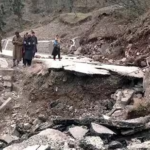What is the history and genesis of Prevention of Money Laundering Act (PMLA) in India? What was the basic purpose of this Act and why its execution in-terms of high-profile arrests hog limelight for right or wrong reasons, its frequent amendments and judicial interventions? Let’s discuss.
The Prevention of Money Laundering Act (PMLA), 2002 came into force in India from July 1, 2005. At the global level, its objective was to counter serious threat not only to the financial system across the countries but also to their integrity and sovereignty, India too fulfilled the global obligation by enacting the legislation over two decades ago.
To obviate such threats, the international community took certain initiatives and they were:
1)The United Nations Convention Against Illicit Traffic in Narcotic Drugs and Psychotropic Substances, to which India is a party, calling for prevention of laundering of proceeds of drug crimes and other connected activities and
2) Confiscation of proceeds derived from such offence,
3) Establishment of Financial Action Task Force at the summit of seven major Industrial nations in 1989 which examined problem of money-laundering and
4) Making forty recommendations including comprehensive legislation to combat this problem.
In order to achieve this objective, the Prevention of Money Laundering Bill was introduced in the Indian Parliament in 1998, after smooth passage in the Parliament, it received assent of the President of India on January 17, 2003 and finally the Act came into force from July 1, 2005.
The Prevention of Money Laundering Act (PMLA) has dwelt deep on its basic fundamental principles—like what constitutes offence of money–laundering, the power to arrest and survey, search and seizure, search of persons and punishment are some of the main sections explained below.
Offence of Money-laundering
Section 3 of PMLA, 2002 which deals with offence of money laundering says that, “Whosoever directly or indirectly attempts to indulge or knowingly assists or knowingly is a party or is actually involved in any process or activity connected with the proceeds of crime including its concealment, possession, acquisition or use and projecting or claiming it as untainted property shall be guilty of offence of money-laundering”
Power to Arrest
Section 19 of the PMLA, 2002 says, “If the Director, Deputy Director, Assistant Director or any other officer authorized by the Central Government has on the basis of material in his possession reason to believe (recorded in writing) that any person has been guilty of an offence punishable under this Act, he may arrest such person and shall, as soon as may be, inform him of the grounds for such arrest..”
Power of Survey
As per Section 16 of the PMLA, 2002, “…where an authority, on the basis of material in his possession, has reason to believe that an offence under Section 3 has been committed, he may enter any place—within the limits of the area assigned to him..”
Search and seizure
As per Section 17 of the PMLA, 2002,” where the Director or any other officer not below the rank of Deputy Director authorized by him for the purpose of this section, on the basis of the information in his possession, has reason to believe that any person—1)has committed any act which constitutes money-laundering or 2) is in possession of any proceeds of crime involved in money-laundering or 3) is in possession of any records related to money-laundering or 4) is in possession of any property related to crime, then, he may authorize any officer subordinate to him to—1) enter and search any building, place, vessel, vehicle or aircraft where he has reason to suspect that such records or proceeds of crime are kept 2) break open the lock of any door, box, locker, safe, almirah etc where the keys are not available 3) seize any record or property found as a result of such search, 4) examine on oath any person, who is found to be in possession or control of any record or property, in respect of all matters relevant for the purpose of any investigation under this Act.
Search of Persons
As per section 18 of PMLA, 2002, if an authority, authorised in this behalf by the Central Government by general or special order, has reason to believe that any person has secreted any record or proceeds of crime which may be useful for relevant to any proceedings under this Act, he may search that person and seize such record or property which may be useful for or relevant to any proceedings under this Act
Punishment for Money laundering
Section 4 of PMLA, 2002 deals with punishment of the accused. It says, “Whoever commits the offence of money-laundering shall be punishable with rigorous imprisonment for a term which shall not be less than three years but which may extend to seven years and shall also be liable to fine….”
The Prevention of Money Laundering Act (PMLA) has been a corner-stone legislation in India’s fight against financial crimes. An array of legislative amendments in 2009, 2012, 2015, 2018, 2019 and 2023 since its enforcement in July 2005, reflect the country’s hardening stance against the illicit wealth.
Global history of money laundering and Indian legislation
July 14 to July 16, 1989- Financial Action Task Force (FATF) established at the summit of seven major industrial nations, held in Paris to examine the problem of money laundering made 40 recommendations.
February 23, 1990—Political Declaration and Global Programme of Action, annexed to the resolution S-17/2 was adopted by the General Assembly of the United Nations at its 17th special session.
June 8 to June 10, 1998—Political Declaration adopted by the special session of the United Nations General Assembly calls upon the member states to adopt national money laundering legislation and programme.
August 4, 1998—To achieve objective of preventing money laundering, the Bill was introduced in the Parliament on August 4, 1998.
March 4, 1999—The Bill was referred to the Standing Committee on Finance, which presented its report on March 4, 1999 to Lok Sabha.
January 17, 2003—The Prevention of Money-Laundering Bill having been passed by both the Houses of Parliament received the assent of the President of India on January 17, 2003.
July 1, 2005—It came on the Statute Book as The Prevention of Money Laundering Act, 2002, that came into force from July 1, 2005.
As per Section 2(y) of the Prevention of Money Laundering Act, 2002, “Scheduled Offences” are classified under Part A, Part B and Part C of the schedule include offences under the Indian Panel Code, 1860, Narcotic Drugs and Psychotropic Substances Act, 1985, Explosive Substances Act, 1908, Unlawful Activities (Prevention) Act, 1967, Arms Act, 1959, Wildlife ( Protection ) Act, 1972, Immoral Traffic ( Prevention) Act, 1956, Prevention of Corruption Act, 1988, Explosives Act, 1884, Antiquities and Arts Treasures Act, 1972, Securities and Exchange Board of India Act, 1992, Customs Act, 1962, Bonded Labour Systems (Abolition) Act, 1976, Child Labour (Prohibition And Regulation) Act, 1986, Transplantation of Human Organs Act, 1994, Juvenile Justice ( Care and Protection of Children) Act, 2000, Emigration Act, 1983, Passports Act, 1967, Foreigners Act, 1946, Copyright Act, 1957, Trademarks Act, 1999, Information Technology Act, 2000, Biological Diversity Act, 2002, Protection of Plant Varieties and Farmers’ Rights Act, 2001, Water ( Prevention and Control of Pollution) Act, 1974, Suppression of Unlawful Acts against safety of Maritime Navigation and Fixed Platforms on Continental Shelf Act, 2002, Companies Act 2013, the Customs Act, 1962 and offence of Cross-border implications etc etc.
(For awareness purpose only. To be continued)
(Author is a senior Journalist)








